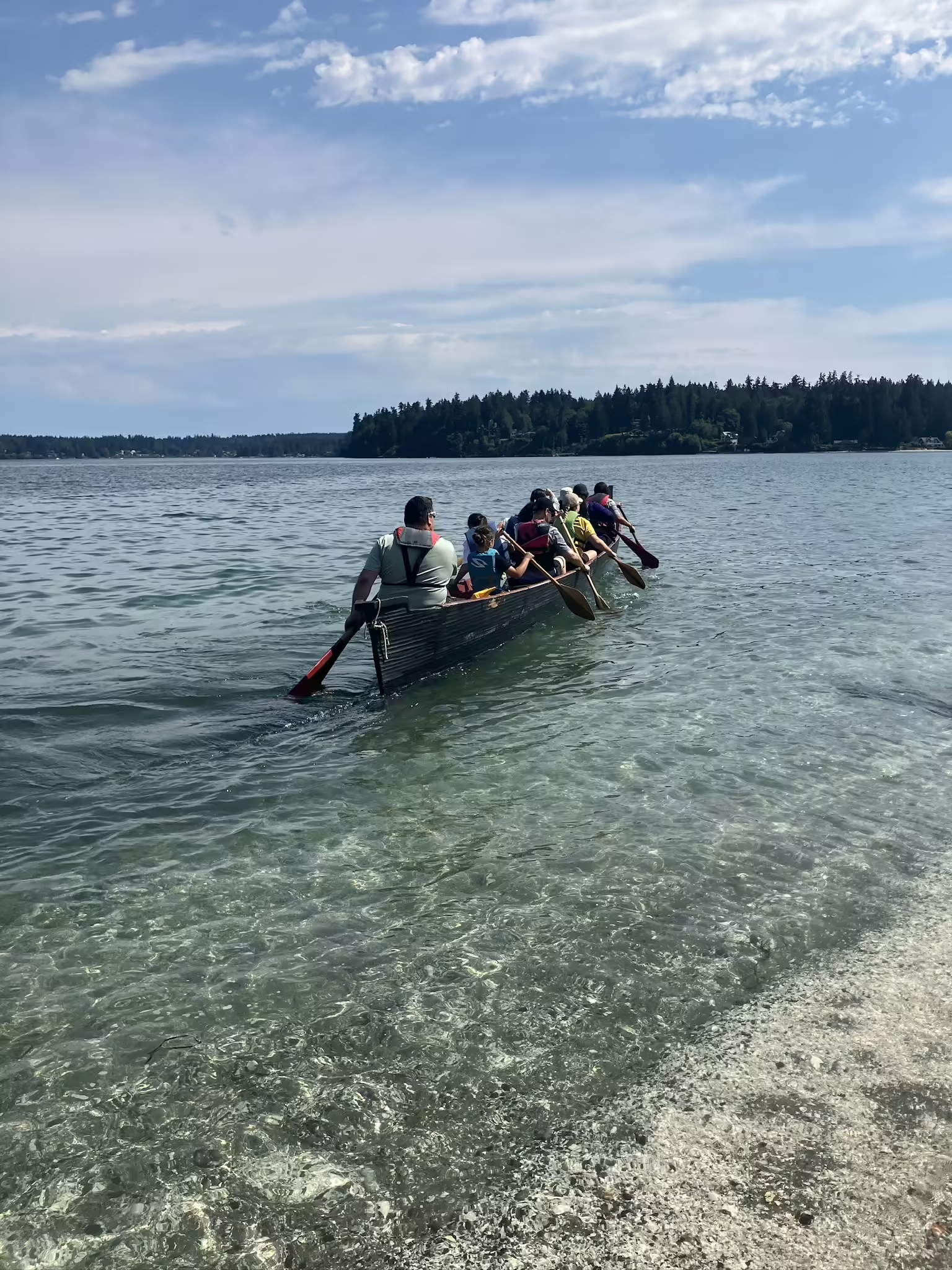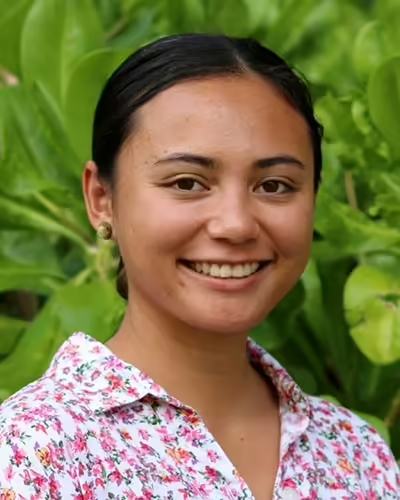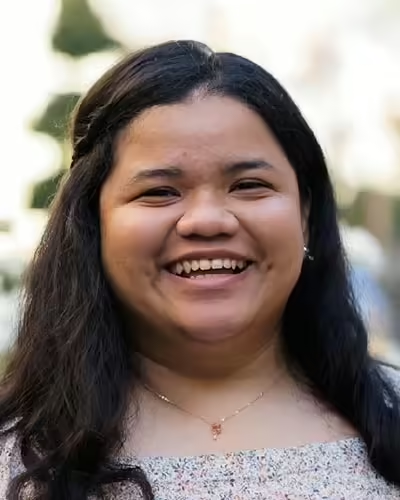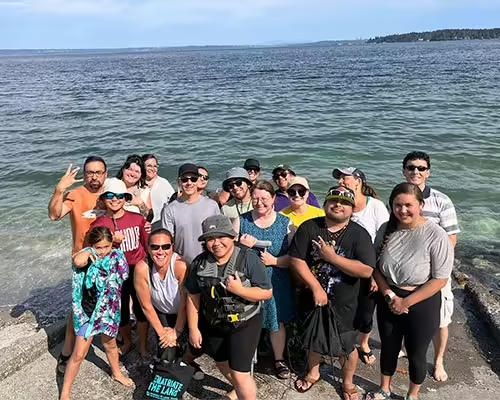A transformative experience. That’s how PhD students at the University of Hawai‘i at Mānoa’s College of Social Sciences (CSS) describe their week at the 2024 Summer Institute on Global Indigeneities (SIGI) in Seattle, Washington.
Among the CSS attendees were Kammie Tavares from Wai‘anae, O‘ahu, and Randizia Crisostomo from Barrigada, Guåhan (Guam) — whose stories reflect resilience and identity in academia.
SIGI, annually hosted by the University of Washington, is more than a seminar. It’s where graduate students with interdisciplinary and decolonial research interests gain not only professional tools, but personal support. For Tavares and Crisostomo, the experience provided a sense of connection and purpose that extended beyond the classroom.
From sandy beaches to urban planning
Tavares, a PhD student in Urban and Regional Planning, has always been fascinated by the relationship between people and places. Starting her academic path studying the geology of sandy beaches, she eventually realized her true interest lay in exploring the human aspect of these spaces.
“I first studied geology, but I wanted to explore how people interact with these environments,” she shared.
At SIGI, especially memorable was a day spent in Suquamish Nation paddling canoes in the Salish Sea. “It was representative of our journey navigating our PhDs as Indigenous peoples,” Tavares reflected.
That day allowed her to connect deeply with other Indigenous scholars on similar paths. “Sometimes, this work can feel isolating,” said Tavares, “but, at SIGI, it was nice to create new relationships with more like-minded people.”
Healing through art and politics
Crisostomo, a PhD student in Indigenous Politics in the Department of Political Science, drew inspiration at SIGI from her CHamoru heritage and a commitment to healing through collective grief using art and storytelling.
To her, Indigenous politics isn’t just academic; it is personal. “It’s fueled by my everyday lived experiences, especially as a CHamoru woman deeply connected to the political structures that shape, influence and interest with Micronesia and the broader Oceania region as a whole,” she explained.
Crisostomo was also deeply affected by paddling on the Salish Sea, and was nervous about the experience until she met an elder who reframed her thinking. “I was told to be fully present in the relationship with the water,” she said. “The elder said as long as you paddle, the canoe will hold you. As long as you keep moving, you’ll stay afloat.”
In addition to Tavares and Crisostomo, two other CSS Indigenous Politics PhD students – Ciera ‘Ihilani Lasconia and Sara Maaria Saastamoinen – attended SIGI 2024.
UH Mānoa’s participation in SIGI is coordinated through Hui ʻĀina Pilipili, the Native Hawaiian initiative in CSS.
“SIGI offers a rare and vital opportunity for Indigenous scholars to come together and engage deeply with decolonial methodologies and global perspectives,” said Lani Teves, UH Mānoa’s SIGI liaison and associate professor/chair of the Department of Women, Gender and Sexuality Studiesin CSS. “The program is a collaborative effort among prestigious partner institutions, including UH Mānoa, UCLA, University of Minnesota-Twin Cities, University of Oregon, University of Washington, and the University of British Columbia-Vancouver. Our involvement since SIGI’s inception in 2016 underscores our dedication and commitment to advancing Indigenous studies and supporting students who pursue this critical work.”
Applications for SIGI 2025 will open soon. For more information, contact Kamakana Aquino, CSS Native Hawaiian coordinator, at (808) 956-2581 or cssnhi@hawaii.edu.



